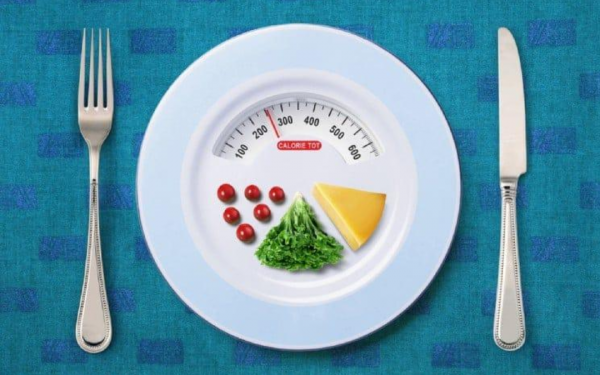What is a calorie deficit? The meaning of calorie deficit in weight loss
Calories are a unit of measurement of energy through food taken into the body, helping to maintain life and provide energy to burn through daily physical activities.
Carbohydrates , fats and proteins are calorie-containing nutrients that provide the body with its main source of energy. However, excess calories consumed are converted and stored in the body as fat (adipose tissue).
Calorie deficit is when the total amount of calories consumed during the day is lower than the amount of energy burned through physical activities. Therefore, this is considered an effective weight loss method, helping the body burn excess energy if the calorie deficit occurs continuously.
How to calculate calorie deficit

The principle of weight loss based on a calorie deficit is very simple: If you eat more calories than you burn, you will gain weight. Conversely, you will lose weight if you eat fewer calories than you burn through physical activity.
To calculate your calorie deficit, you need to calculate your calorie intake (BMR) and daily calorie expenditure (TDEE) using the following formulas:
Step 1: Calculate BMR and the amount of calories you need per day
BMR is the number of calories needed to maintain basic life-sustaining activities such as breathing, maintaining blood pressure, and digestion. Here, we use the Mifflin-St Jeor Equation formula:
Men:
BMR = 10W + 6.25H – 5A + 5
Women:
BMR = 10W + 6.25H – 5A – 161
Note:
W is body weight in kg H is body height in cm A is age
Step 2: Calculate TDEE calories to burn
TDEE is the total number of calories you need to burn in a day, based on the formula:
How to calculate calories burned
TDEE = BMR x coefficient (coefficient depends on frequency and intensity of exercise of each person)
TDEE = BMR x 1.2 if you are sedentary or do not exercise TDEE = BMR x 1.375 if you exercise lightly and regularly 1-3 days/week) TDEE = BMR x 1.55 if you exercise 3-5 days per week TDEE = BMR x 1.725 if you regularly exercise heavily 6-7 days/week TDEE = BMR x 1.9 if you exercise at high intensity twice a day regularly
Currently, you can calculate BMR and TDEE by entering your parameters on the Calculator page or the BMR Calculator on HelloBacsi.
Step 3: Calculate your calorie deficit
How to calculate calorie deficit
TDEE – BMR = calorie deficit
According to the American Heart Association, you can lose 1 pound (0.45 kg) in 1 week if you eat 500 calories less than your maintenance calories each day.
Specific example : In 1 day, if your TDEE (calories burned) is 2,000 calories and your calorie intake is 1,500 calories (calorie deficit 2,000 – 1,500 = 500 calories); and continuously for 7 days with these two indicators, you will lose 0.45kg.
You can even lose weight faster if you increase the intensity and duration of your workouts to increase the number of calories you burn.
Eat according to the weight loss method if you want to lose weight faster increase the intensity and time of exercise to help the body burn more calories
Safe Calorie Deficit Recommended by Experts
“Experts recommend that for beginners, you should start with a calorie deficit of 200-300 and then gradually increase by 500-750 calories so that the body can gradually adapt.”
Furthermore, you should also pay attention to the amount of calories you should consume to ensure your body has energy to function and lose weight safely:
Women should balance their diet and consume 1,200 to 1,500 calories per day to help lose weight safely. Men: A diet containing 1,500-1,800 calories per day is suitable for weight loss. Overweight or obese adults should reduce total calorie intake by adopting a variety of eating patterns during the first 6 months to 2 years. Who should not do a calorie deficit?
It is undeniable that the benefits of a calorie deficit help us lose weight effectively, however, some people with medical conditions need to pay attention and should not apply the above formula to lose weight such as:
People with type 2 diabetes : A calorie deficit can cause blood sugar levels to drop too low. Kidney problems : Changes in water intake during calorie reduction can put stress on the kidneys. People with high or low blood pressure : Blood pressure is also affected if there is a change in hydration and water intake.
People with the above health problems should consult a medical professional before following a diet aimed at achieving a calorie deficit for weight loss.



